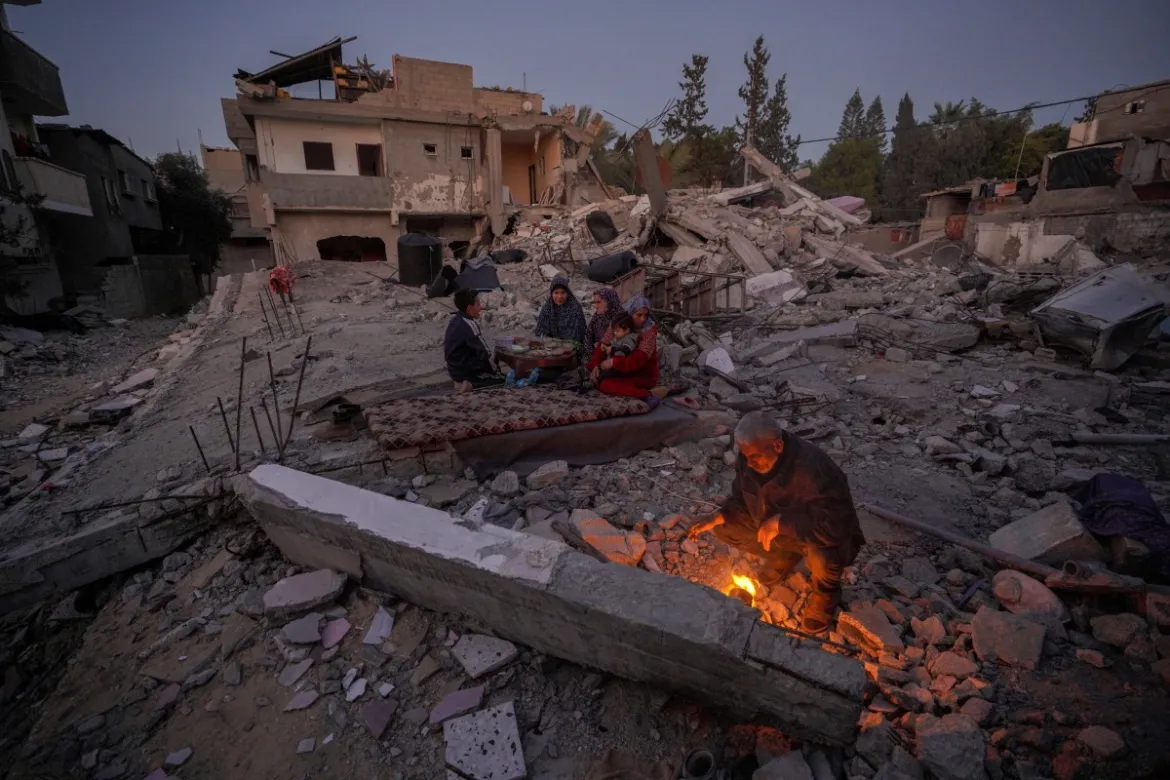On Monday, more than a billion and a half Muslims worldwide started their fasting month of Ramadan, a month when Muslims unapologetically celebrate their traditions and religion.Through the years, Muslims in America have celebrated their holy month with family and friends, in community gatherings under tents, in restaurants and in mosques. Since the 9/11 tragedy, they’ve been in self-cultural exile. Living in America as a Muslim has been a challenging ride and a constant struggle, every day stumbling over the bumps of the Islamophobia landscape, racism and the MAGA version of domestic terrorism. Even so, Muslims have celebrated the holy month of Ramadan in Times Square in New York, the city most associated with the terrorist attacks of 9/11. Thousands of Muslims proudly descended on the iconic square to celebrate their tradition. They prayed the “Taraweeh” Ramadan evening prayer surrounded by flashy, gigantic Madison Avenue billboard ads. Muslims also have gone mainstream here in Minneapolis, with the call for prayer (adhan) now allowed to be broadcast from speakers from mosques, bringing the community together to pray freely. This Ramadan, however, comes under a cloud — the slaughtering of Palestinians in Gaza. For more than five months now, the people of Gaza have been enduring constant bombing, ethnic cleansing, massacres, disease, hunger and starvation masterminded by the Israeli armies and by its Western allies, especially the Americans, providing the weapons, ammunition and political coverage. The people of Gaza are trapped among a Zionist racist ideology establishing a jewish state that is trying to behead a nation of natives, and a Western world that is accomplice to the slaughter, and an Arab Zionist leaders that are sitting on the sideline waiting for the Israeli to finish the job and finish Hamas. However, these brutalities and human travesty didn’t stop the people in Gaza from celebrating their Ramadan traditions. If the world has abandoned the Palestinians, Ramadan traditions could help them to raise their spirits, to survive.
In Gaza, you can see people gathered with family members, in whatever way seemed safe, sitting in front of their destroyed homes, decorating crumpled buildings with flags and lights, sitting on the ruins and remains, preparing food for breaking the long day fast. The adhan comes from atop destroyed mosques. According to the publication Middle East Eye, Israel has destroyed more than 1,000 of them in Gaza. With all the starvation and darkness imposed on Gaza, people found a way to light a candle, to smile and to define the forces of evil lurking around them, the tanks and snipers, the buzzing jets, the drones hovering over their heads.
Few places have been left standing in Gaza. Still, you see kids holding Ramadan lanterns, chanting among the rubble in the streets.
In fasting Ramadan, Muslims are encouraged to feel the pain of hunger, to give charity generously to the poor and to sympathize with those in need, which the people of Gaza have experienced in the last five months. The average Muslim loses 15 pounds during Ramadan, no health club or WeightWatchers programs needed. In another Ramadan tradition, Muslims are encouraged to abstain from gossiping, from spreading rumors and misinformation of the kind filling our news and our social-media conversation, the meaningless and impersonal communication that polish sociologist Zygmunt Bauman described as a community of lonely people constantly connected. Many social-media posts are staged or fake, fraught with baseless claims about Hamas.
The problem is that when the Israelis attack the Palestinians, they are the Israel Defense Forces; when the Palestinians resist, they are considered terrorists. A claim of Israelis being raped on Oct. 7 was propagated by Israeli securities and politicians and has been adopted by Western media. Here is Bret Stephens in the New York Times with an article headlined “The New Rape Denialism”: “The interesting question is, why? Why the refusal to believe that Hamas, which butchered children in their beds, took elderly women as hostages and incinerated families in their homes, would be capable of that?” Yet here is the Guardian in an article propagating the same rape claims: “In the immediate aftermath of the attack, overwhelmed by the sheer number of victims, and the burned or disfigured state of some of the bodies, morgues were preoccupied with identification and did not have the time or capacity to test for sexual assault using rape kits. ….” The Guardian is talking about gender-based violence by Hamas, yet there is no word about the almost 9,000 Palestinian women killed in Gaza. Once again, The west believes, only the Jewish victims are recognized; the West can’t see Palestinians as victims, The Zionist colonial project hijacked the Holocaust, turning to a business, as Polish Sociologist Zygmunt Bauman wrote, The Holocaust Industry.If president Biden with his Ice Cream diplomacy couldn’t stop the slaughtering of Palestinians and establish a ceasefire Ramadan traditions could help bring peace in Gaza? During Ramadan, you are encouraged to stop holding grudges, a social illness that causes significant psychological damage and unwarranted breakups. It is time to forgive and forget, to start a new page in your relationships. In Islamic tradition, Muslims are called on to put down their swords during Ramadan unless attacked or invaded. It is a perfect time for a cease-fire, a breather from war, giving the parties time to reflect and reassess their conflict and disagreement. Another Ramadan tradition is giving charity to the poor, which can be a call to everyone who is peace-loving to give and help relieve the suffering of the Palestinians in Gaza.
Finally, during Ramadan, Muslims are supposed to avoid meaningless, lewd language and hurtful conversations. This could reduce 90% of media hype, TikTok videos and other postings. It could keep hate speech down and tune down the political rhetoric generally. Ramadan kareem, everyone. A generous Ramadan to you.
Ahmed Tharwat, host and producer of the local Arab American TV show “BelAhdan with Ahmed,” writes for local and international publications. He blogs at Notes From America: www.Ahmediatv.com. On X: @
Read it in Startribune
Ahmed Tharwat
BelAhdanTV

